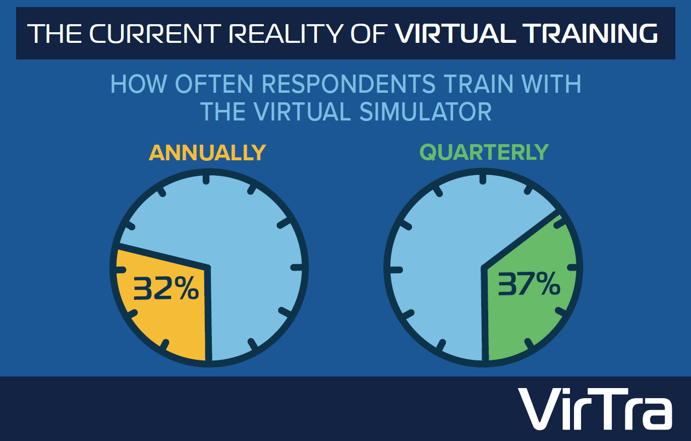
A recent survey revealed that law enforcement agencies only train with their simulator once a quarter or even worse, only once per year. This lack of consistent use creates considerable downtime that you could be using your simulator in other areas to improve your law enforcement agency. However, what can your team use the simulator for during that downtime that could help improve how often you can incorporate it into other areas of teaching. When looking for new ideas on how to train your law enforcement team with simulation technology, there is always something new to add. Several agencies have incorporated their simulators into other areas of training and development for their law enforcement staff; here are a few ideas to share with your sergeant or chief:
Evolving PTSD Treatment for Law Enforcement
When a clinical psychologist named Dr. Lamaurice Gardner started working with his law enforcement patients, they wouldn’t speak to him about their problems. But how could he begin to help them with their Post-Traumatic Stress Disorder (PTSD) if they didn’t start talking? The culture of law enforcement is that only “cops understand cops,” which made his job difficult at best. That’s when Gardner started on his quest to help officers relate to him on a personal level by becoming a police officer. After gaining their trust and confidence, he found that using the VirTra training simulator had profound effects on their ability to put their trauma behind them and move forward. By using the simulator to go through scenarios similar to the event that caused their trauma, he found that they were able to overcome some of the anxiety and put their past behind them. This treatment that Gardner pioneered with the use of simulation is a new way to approach PTSD or “CopShock” and his methods are having a profound effect on his law enforcement patients.
Customized SWAT Training
When the SWAT team is called in for assistance, their likelihood of having a critical incident is more than twice as likely to have to demonstrate their skills with the use of force. One SWAT training sergeant took a look at what their patrol officers were doing at the Fond Du Lac Sherriff’s Office in the VirTra V-300® simulator and found that he could easily incorporate the available training for techniques such as officer down, and hostage rescue drills for their team to safely practice proper techniques. The level of immersion was able to induce the stress necessary to teach their team how to react and keep their head on a swivel. He found VirTra simulation training useful for things such as active shooters and debriefing what actions they took after to provide individual feedback. This maximized the limited time they had to train their SWAT team which is now independent of weather and traveling to and from the range.
Cop Talks With Ken Wallentine
The Utah Attorney General’s Office uses their simulator in a variety of ways to improve use of force training. They have a great improvement in officers’ ability when using their system for items such as remedial training and educating prosecutors. By helping the prosecutors understand how memory is encoded and recall, and they teach them about common perception distortions experienced in a critical incident. The prosecutor students also learn why some persons are shot in the back during a dynamic incident. To give you more ideas here is a video from the monthly series called Cop Talks:
Customize Scenarios with Familiar Locations
While the VirTra scenario library has a complete range of scenario types, creating your own customized scenarios is a unique feature that can help create the training your team needs. With the V-Author software from VirTra, O’Fallon Police dept was able to take photos of local areas around town and incorporate those familiar landmarks into their training routine so that they can customize their training experience to have active shooter training with image of local schools to help them better prepare should something happen at one of their local schools.
These examples provide insight into how you can incorporate other areas of judgmental use of force training to help your law enforcement agency improve their skills and teach others about what law enforcement goes through every day. With innovative ideas like these to give your simulation training a boost, there is always room for improvement and consistency in training. Otherwise, only using the simulator once a quarter or once a year is a disservice to your team and the community. These ideas show that simulation training with VirTra has several applications for anything from alternative PTSD treatment to educating legal prosecutors and even making your own scenarios to customize training to your region.
If you would like more info on how to improve your training with VirTra, click here to learn more.
Recently Published
Join Our Newsletter







